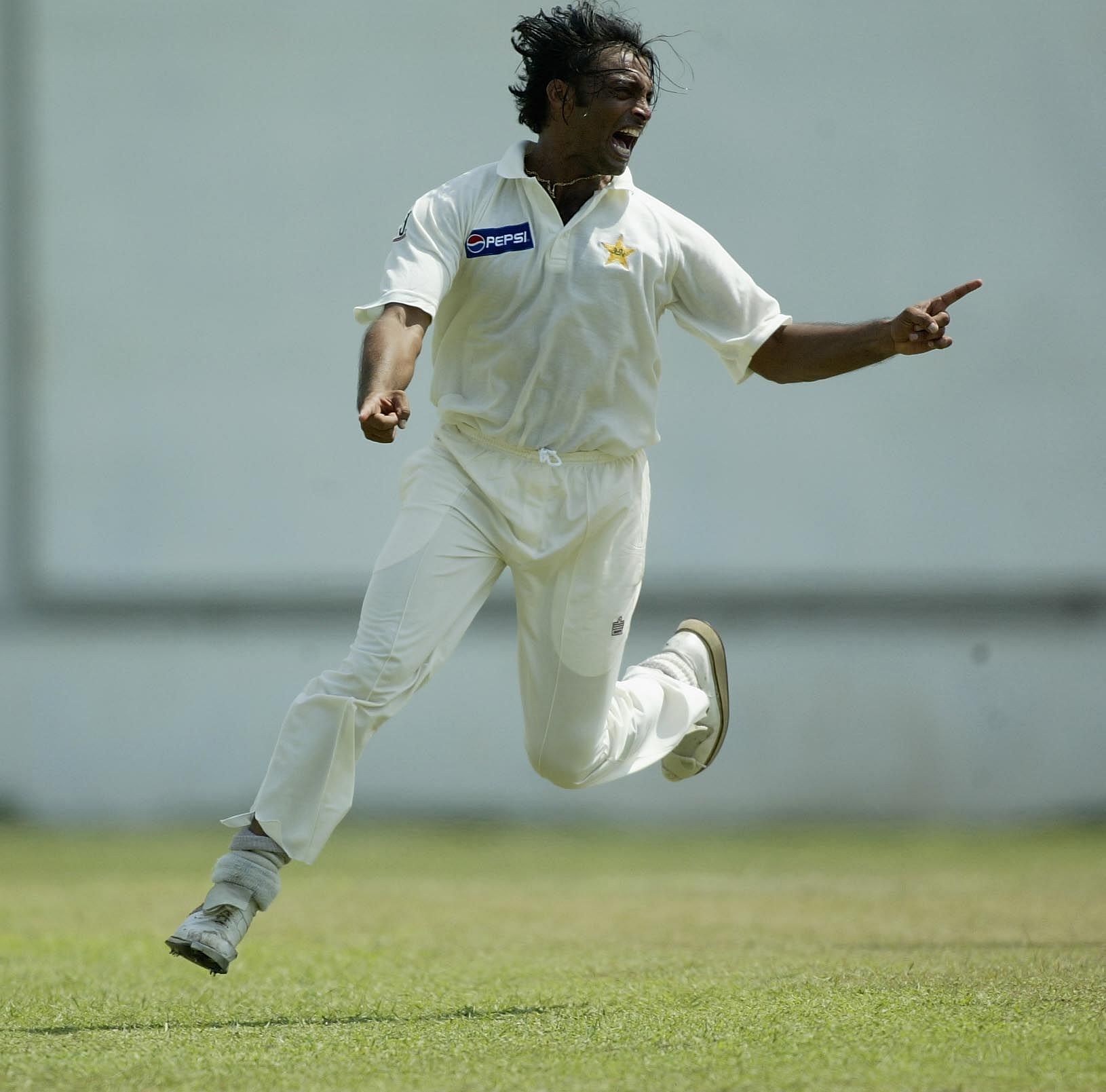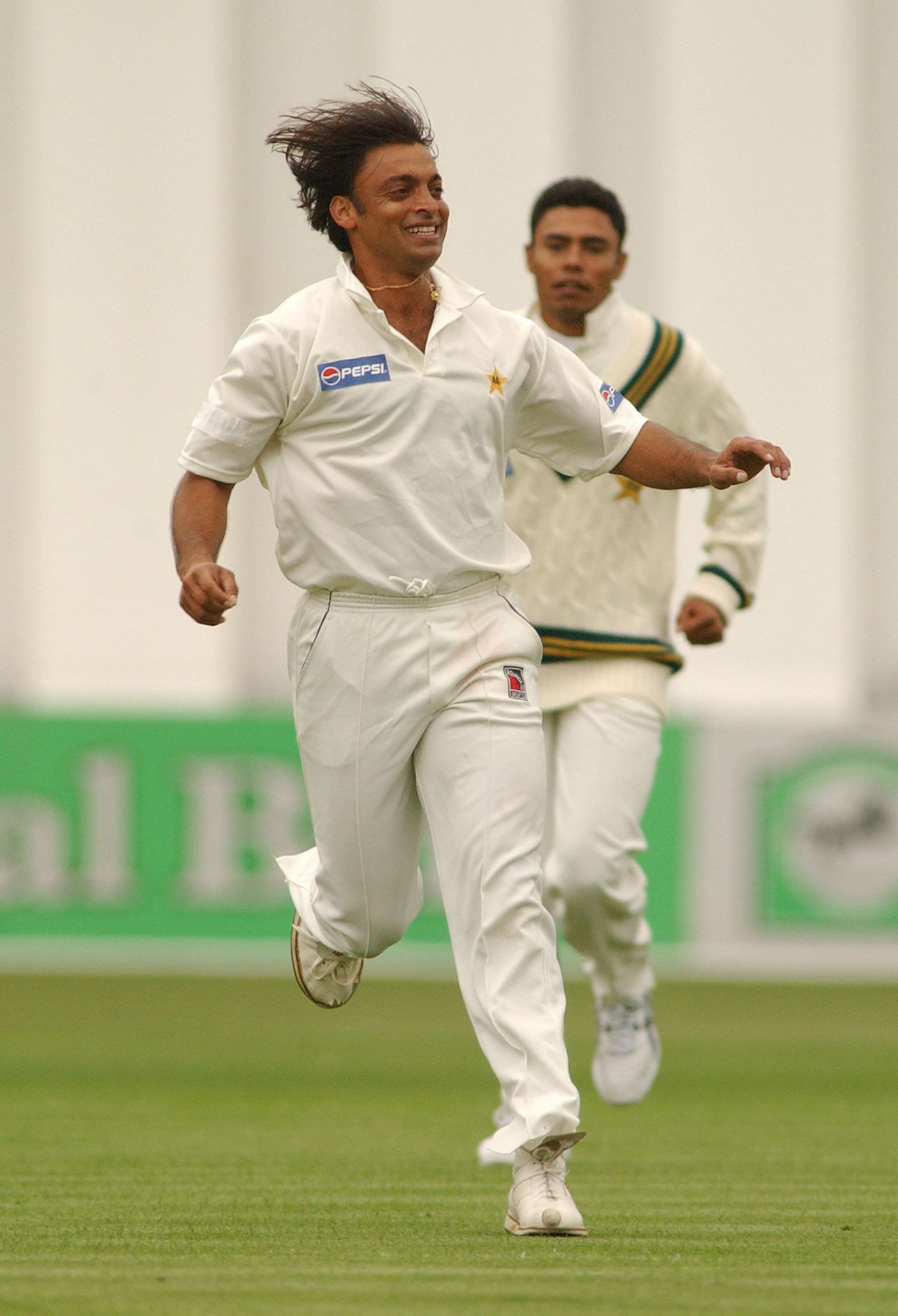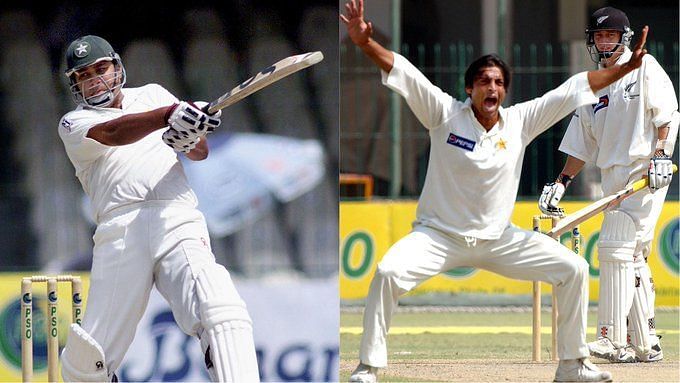
Birthday special: Shoaib Akhtar's top three bowling spells in Tests

Shoaib Akhtar has turned a year older as the Pakistani former pacer celebrates his 47th birthday today (August 13). A bowler with extreme pace, Akhtar was a thrilling performer when on song. However, many would argue that he failed to reach his potential and didn't become the legend he could have.
Shoaib Akhter made his debut in 1997, in a Test against West Indies at Rawalpindi. By the turn of the century, the right-armer became a mainstay of Pakistan's illustrious bowling attack in both red-ball and white-ball cricket.
Akhtar troubled numerous batters during his 14-year cricket career, and has come to be regarded by many of the top batsmen of his era as the fastest bowler they encountered.
Unsurprisingly, the whirlwind pacer holds the record for bowling the fastest ball in cricket history (registered) when he clocked 161.3 km/hr (100.2 mph) - in an ODI against England during the 2003 Cricket World Cup in South Africa.
Overall, the 'Rawalpindi Express' picked up 444 wickets across the three formats in international cricket. Though plagued by inconsistency and indiscipline at times, he managed to produce several match-winning spells for Pakistan in his career.
On the occasion of his 47th birthday, let's look back at Shoaib Akhtar's top three bowling performances for Pakistan in Tests.
#3. 5/21 vs Australia in Colombo (2002)

When Shoaib Akhtar was in the mood, he could be absolutely unplayable, irrespective of the nature of the pitch or the quality of the opposition. In Colombo, Akhtar demonstrated his ability to get the better of even the mightiest team of the generation.
Having conceded a 188-run first innings lead, Pakistan needed to dismiss Australia for a low score but it did not go their way. The Aussies were completely at ease with the scoreboard reading 74-1. Matthew Hayden and Ricky Ponting were playing comfortably in the middle, until Shoaib Akhtar bowled a devastating 8-over spell.
During the 21st over, Ponting played an Akhtar delivery on to his stumps before the Pakistani pacer blasted out the likes of Steve Waugh, Mark Waugh, Adam Gilchrist, and Shane Warne.
Due to Shoaib Akhtar's carnage, Australia went from 74-1 to 89-7. Akhtar did his job, helping Pakistan dismiss Australia for 127. Still, the Aussies went on to defeat Pakistan by 41 runs.
#2. 6/11 vs New Zealand in Lahore (2002)

The year 2002 was exceptional for Shoaib Akhtar, who mustered as many as 42 scalps in nine Tests that year. New Zealand, when they toured Pakistan for a short series in 2002, were on the receiving end of a masterful bowling spell by the 'Rawalpindi express'.
In the first Test at the Gaddafi Stadium in Lahore, Pakistan won the toss and elected to bat first on a batting paradise. A triple century from Inzamam-ul-Haq helped them pile on 643 in the first innings.
There was no way the hosts were going to lose the match and the best the Kiwis could hope for was a draw, if they batted well. However, the then 26-year-old speedster was having none of it.
The pitch might not have been ideal for fast bowling, but that was only true if one intended to pitch the ball there. Shoaib Akhtar purposely aimed to punch a hole through the batter's feet as he fired bullet-like yorkers at them.
The first victim was opener Matt Horne, whose slow reaction time allowed Akhtar's inswinging yorker to smash into his stumps. Soon enough, Akhtar ransacked the Kiwi batting line-up and dismissed Mark Richardson, Stephen Fleming, Chris Harris, Brook Walker, and Chris Martin.
As the tourists were bundled out for a paltry 73, Akhtar finished the innings with career-best figures of 6/11 from just 8.2 overs. After Pakistan gained a humongous lead of 570, they opted to give New Zealand a follow-on before winning the Test by an innings and 324 runs.
#1. 4/71 vs India in Kolkata (1999)
Shoaib Akhtar never shied away from giving his all against the world's best batters and the first Test between India and Pakistan in 1999, at Kolkata, saw exactly that.
Akhtar's best performance against his familiar foes, India, came in front of a jam-packed Eden Gardens crowd. At that iconic venue, he put on an exemplary display of fast bowling.
Batting first, Pakistan struggled to get going as they collapsed to an ordinary total of 185. The hosts had a bright opportunity to stake their claim onto the match but Shoaib Akhtar had other plans. When India were aiming for a massive first innings lead after cruising to 147-2, Akhtar's raw pace and swing stumbled upon them.
The Pakistani pacer turned the game on its head as he bowled two cracking balls to get the better of Rahul Dravid and Sachin Tendulkar on consecutive deliveries.
This was fast bowling at its finest. There might hardly be any other example of two finer successive deliveries bowling by a fast bowler in the history of cricket. The two batsmen who were dismissed of these two balls were two of the finest ever and possessed the most impeccable defense in the cricket world of that time.
The first ball was a near-perfect in-swinging yorker which went through 'The Wall's defence and castled him. In walked the legendary Sachin Tendulkar.
The very first ball he faced was another in-swinging delivery. Though it wasn't a perfect yorker, the swing and the pace meant that it went through Tendulkar's defenses and knocked back his middle stump. Tendulkar was out for a golden duck, that too, in the most comprehensive manner.
This led to a collapse for the hosts as they ended their innings on 223. Saeed Anwar's vigilant 188* took Pakistan to a total of 316 runs in the third innings, tasking India to chase 278 in the last two days.
Fresh from his heroics in the first innings, Akhtar once again shone with the ball, delivering an even better performance in the last innings as he recorded a figure of 20-5-47-4.
His display of reverse-swing bowling once again trounced Dravid and paid off for the visitors as India lost the historic game by 46 runs. However, what will forever live in the memory of cricket fans would be those two searing deliveries that sent India's finest two batsmen back to the pavilion.
